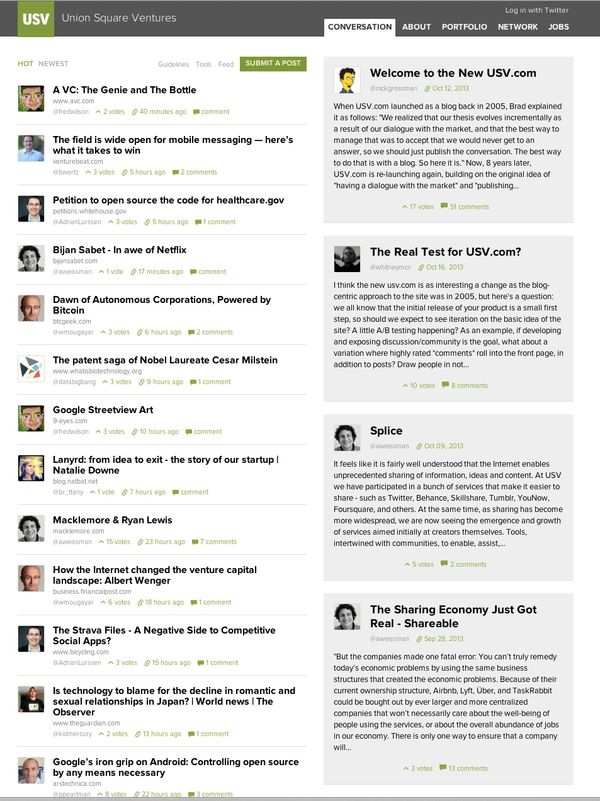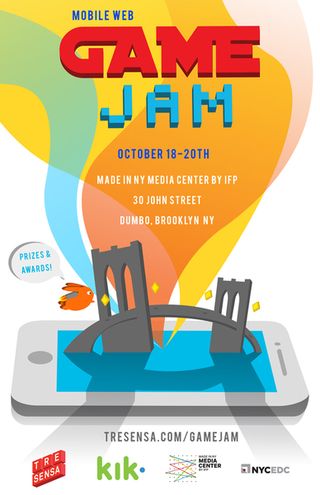A New Front Door For USV
This won't be news to many of you who figured this out a while ago. But USV has a new front door and has had it for a few weeks now. I blogged about the desire for a new usv.com back in June of 2012, when we started thinking about what the new website should be. I framed the problem we were trying to solve as:
We started having the conversation all over the place. We've been having the conversation here at AVC since 2003. But we also have the conversation at continuations.com, aweissman.com, unfinished work, christinacacioppo.com, garychou.com, and on countless tumblrs, twitters, disqussions, and elsewhere around the web.
You might ask "why did it take you 16 months to build a new website?" and you would be right. When it comes to VCs, do as we say, not as we do 🙂
But seriously, we went down a few dark alleys and it took a while to figure out they were leading nowhere. We ended up with something that some have characterized as a "clone of hacker news" and you would be right to say we were inspired by the design of hacker news in our new website. We hope it is not a clone because if it is, we have contributed nothing new to the Internet.
The new usv.com looks like this:
First and foremost, it will be a place that we can cross post the things we write from around the web. As you can see, I cross posted my blog from yesterday and it is currently at the top of the feed.
But it is also a public view into the links we are sharing with each other at USV. You can see Andy sharing a post written by our friend Bijan, Brittany sharing a post about the Lanyrd startup story, and me sharing one of my favorite Tumblrs.
Most of all, it is a place for everyone to have a public conversation with USV about the things they think are interesting right now. Anyone can post to the new usv.com. All you need to do is login with your twitter handle and you are cleared to post.
If you want to show us your new startup, it is cool to pitch us publicly. We would encourage you to use the "Show" syntax, so if you are pitching, start your headline with Show USV: and everyone will know what is going on. Pitching is not spamming at usv.com if its done correctly.
New posts go onto the new page not the front page. Many of us at USV and a growing number of others are visiting the new page several times a day and upvoting posts. When you get upvotes and comments, you get onto the home page, and if you post something awesome, you will get the top of the front page. Nothing new here. Reddit, Hacker News, and others have been doing this sort of thing for years. We finally got around to it oursleves.
Nick, who led the effort to get this out the door, along with Zach, Zander, and Brian, wrote a short explanation of why we did this. I have been encouraging him to write a follow up on how, what stack we used, etc. I hope he will do that.
We have some great tools to make it easier to participate on usv.com, you can find them on the tools link at the top of the feed. Commenting is powered by Disqus, of course, and we would love to hear your thoughts as often as possible. There is a post bookmarklet, a chrome extension, and an android share app. We will be getting a firefox extension out shortly. And if iOS ever opens up sharing in their OS, we will build an iOS share app.
I hope you'll make the new usv.com a place you want to visit regularly and if you are the kind of person who enjoys sharing and posting, please do that. The more the merrier I believe.



